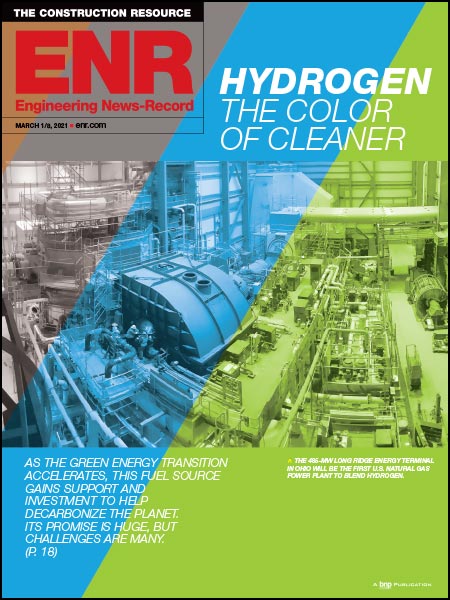$1-Billion Powerplant Project on Hold over "Carbon Offsets"
Early-stage construction of an incinerator and powerplant project near Baltimore is at a standstill after the Maryland Dept. of the Environment issued a stop-work order over emissions reductions credits (ERC) needed to comply with restrictions on its air-quality permit.
The plant owner, Energy Answers International, had received an air-quality permit to construct a 120-MW generating station that would combust an average of 4,000 tons per day of processed municipal solid waste at the brownfield site in Curtis Bay, Md., according to the Maryland DOE. The company first had to show, however, that it had offset credits for approximately 1,500 tons of nitrous oxides, volatile organic compounds and particulate matter emissions. "Failing to obtain or maintain the emission offsets prior to or during the course of construction is a violation of Maryland's ambient air-quality-control laws,” said a June letter from the Maryland Dept. of the Environment (MDE) to Energy Answers. The letter included the stop-work order, which was sent on June 19 by the Maryland attorney general on behalf of the DOE. The company faces over $8 million in fines if the situation is not resolved, MDE said.
Energy Answers did not respond to ENR’s request for comment.
Local opponents of the project say the violation is a concern because ERCs are used to keep tabs on greenhouse-gas emitters in areas that don't meet federal air-quality standards.
Baltimore and its surrounding areas are classified by the U.S. Environmental Protection Agency as a “non-attainment zone” for air-quality standards and as one of the worst polluted areas in the nation, MDE says. More states, including California, Ohio and Texas, are developing carbon trading mechanisms as part of their respective pollution control schemes.
For example, Maryland's Healthy Air Act requires new projects to obtain ERCs from other sites that are either shut down or feature emission controls that exceed the standard. Then, these ERC-generating sites can sell them to new projects. The credits are verified and banked by the state using site inspections, stack tests and other reporting mechanisms. MDE spokeswoman Samantha Kappalman said the Energy Answers plant is purchasing credits from a Sparrow's Point, Md., steel plant, being managed by a broker in Texas. The agency says Energy Answers' alleged failure to exercise an option to buy 79 tons of emissions offsets from the U.S chemical manufacturer alerted MDE to the issue over ERCs.
Rod Easter, president of the Baltimore Building and Construction Trades Council, whose union members are involved with some of the work on the $1-billion project, says contractors should know the risks imposed by these complex, often obscure "carbon offset" programs that could lead to more stop-work orders and fines.
"It's a huge project and very important to the area because the city has got to find a way to get rid of this trash," he says. "I thought everything was in line, but the opponents are relentless about having this thing stopped, while people [are] unemployed and we're accumulating trash."
As Easter indicates, proposed projects that emit greenhouse gases face a complex set of rules and accounting requirements that create technical loopholes for project opponents to exploit. "Special-interest groups have just nitpicked everything about this plant," he adds. "Until this happened, I thought we had done all the work we needed to do and had received all permits from the EPA," he adds."Now we're faced with this loophole." Construction has been moving along slowly: There has been no actual vertical construction yet, and union members at work on the site were driving pylons when construction was stopped. "These projects better make sure they have dotted all their i's and crossed all their t's," says Easter.


